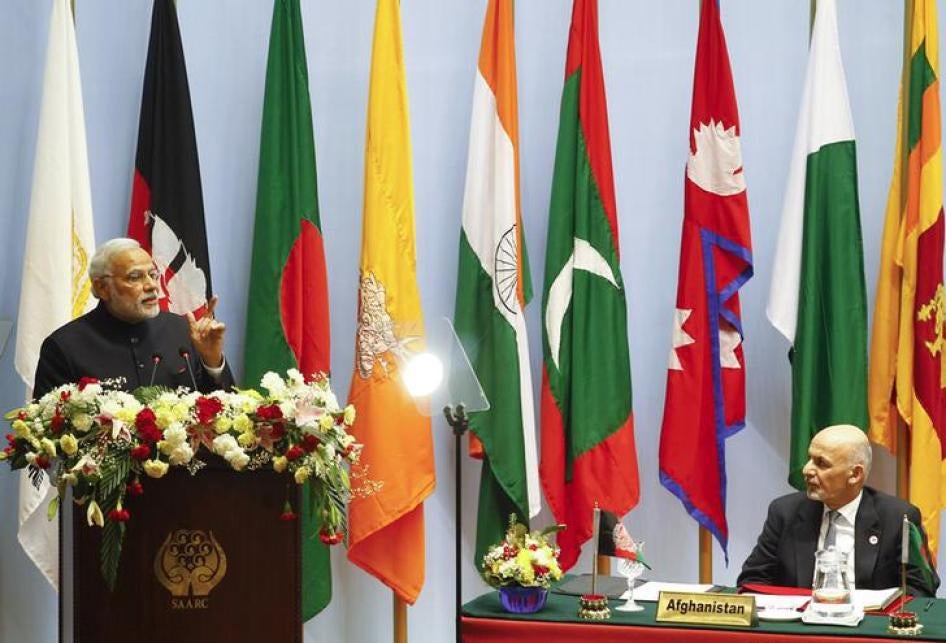In the old days, Indians would speak of the “hidden hand,” accusing people of being on the payroll of CIA, or even the KGB. These days, Indian officials seem to have been attributed a similarly long and evil arm of influence by our neighbors.
After the mysterious disappearance and subsequent return of Farhad Mazhar, a Bangladeshi columnist and activist, on July 3, local media in Bangladesh reported conjecture that “Indian agencies” were responsible for the abduction. Nepali analysts have long spoken of “Indian agencies” being involved, usually playing a negative role, in political decisions; but the distrust runs so high that a Nepali national recently even suggested to me that India’s prompt earthquake rescue and relief mission two years ago, was motivated by a hidden agenda.
This is partly because India, by sheer size of its population, military, economy and geography, is an overwhelming presence in the subcontinent. But its officials should have realized by now that repeatedly saying that India wants peaceful ties, based on cooperation, is not enough.
While it is generally accepted that it will, like all other countries, prioritize its strategic interests – primarily linked to China’s growing clout – the open dismay toward India is not without basis. While many of the allegations might be dismissed as local paranoia, India also needs to reconsider its image. India’s clear and unwavering support for core democratic and human rights principles in neighboring countries might go a long way toward dispelling some of the public anxiety.
For instance, many Bangladeshis, particularly opposition party supporters, believe that India is bolstering the ruling Awami League. The Sheikh Hasina government has addressed many of India’s key security concerns, partnering in counter-terrorism operations and closing borders to insurgent groups. Bangladeshi security forces, however, are accused of serious human rights violations including extra-judicial killings, secret detentions and enforced disappearances, often targeting the opposition Bangladesh Nationalist Party and the Jamaat-e-Islami. India has failed to raise concerns about these practices, which generates allegations of complicity.
In Nepal, almost everything, even the potholes, are often blamed on “Indian agencies.” When Indian Prime Minister Narendra Modi addressed the Nepali parliament in 2014, it appeared that things might have changed – people came out on the streets to applaud him. Soon after, however, that enthusiasm vanished, to be replaced by a familiar aggrieved suspicion. The unrest in Nepal’s southern plains, the intractable political disagreements, the recent effective blockade on supplies to the hills from the Indian border due to the Terai protests, have played their part. Since the military, the Maoists, and most of the political parties had some role in the abuses that occurred during the civil war, India’s protective hand is presumed in ensuring that its favorites hold office. Such claims would dissipate were India, which played an important part in ending the decade-long Maoist conflict in 2006, to publicly press for conflict-related justice and accountability.
Bhutan’s fledgling steps toward democracy, many Bhutanese believe, were derailed by India, which is accused of weighing in to ensure the election of its preferred candidate. India stumbled in the Maldives too, failing to stand up for the basic rights of the political opposition. Promoting human rights in both places would not only have helped the citizens of these countries, it could have ended the mistrust.
India’s footprint was much more visible in Sri Lanka where Tamil Nadu politicians actively campaigned for the rights of Sri Lankan Tamils. Yet, India failed to condemn laws of war violations by both the Sri Lankan security forces and the rebel Liberation Tigers of Tamil Eelam (LTTE) in the final months of the war in 2009, actively scuttling a rights-protecting intervention by the UN Human Rights Council. With the LTTE defeated, India did endorse Human Rights Council resolutions urging accountability, but both the Sinhalese and Tamils have reason to remain suspicious of India’s role.
When Prime Minister Modi invited regional heads of state to his government’s inauguration in 2014, there were hopes that he was signaling a shift in India’s relations with its neighbors.
Modi now needs to turn that sentiment into action by promoting respect for human rights abroad. Concerns over “Indian agencies” are not going to disappear on their own.







